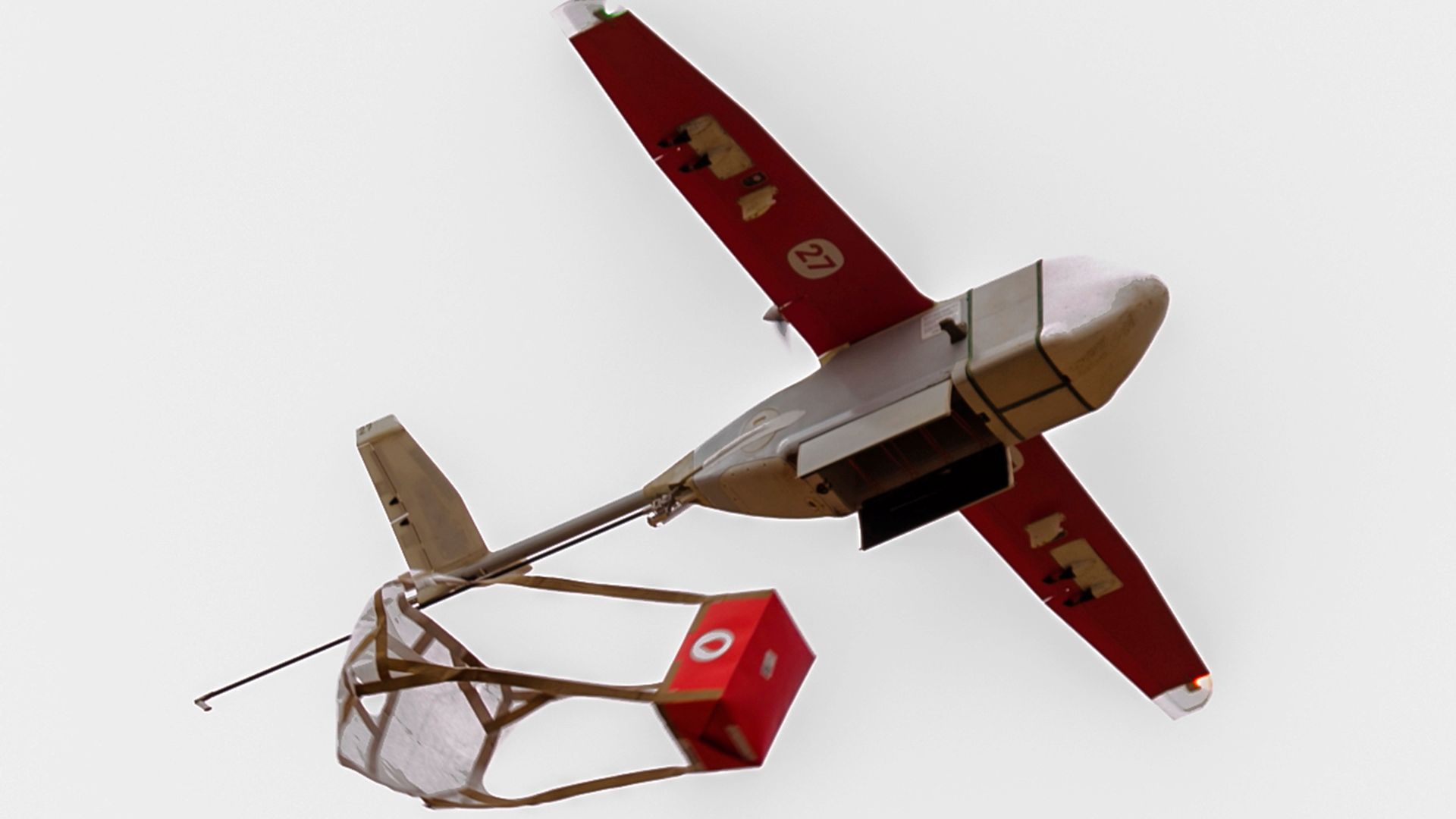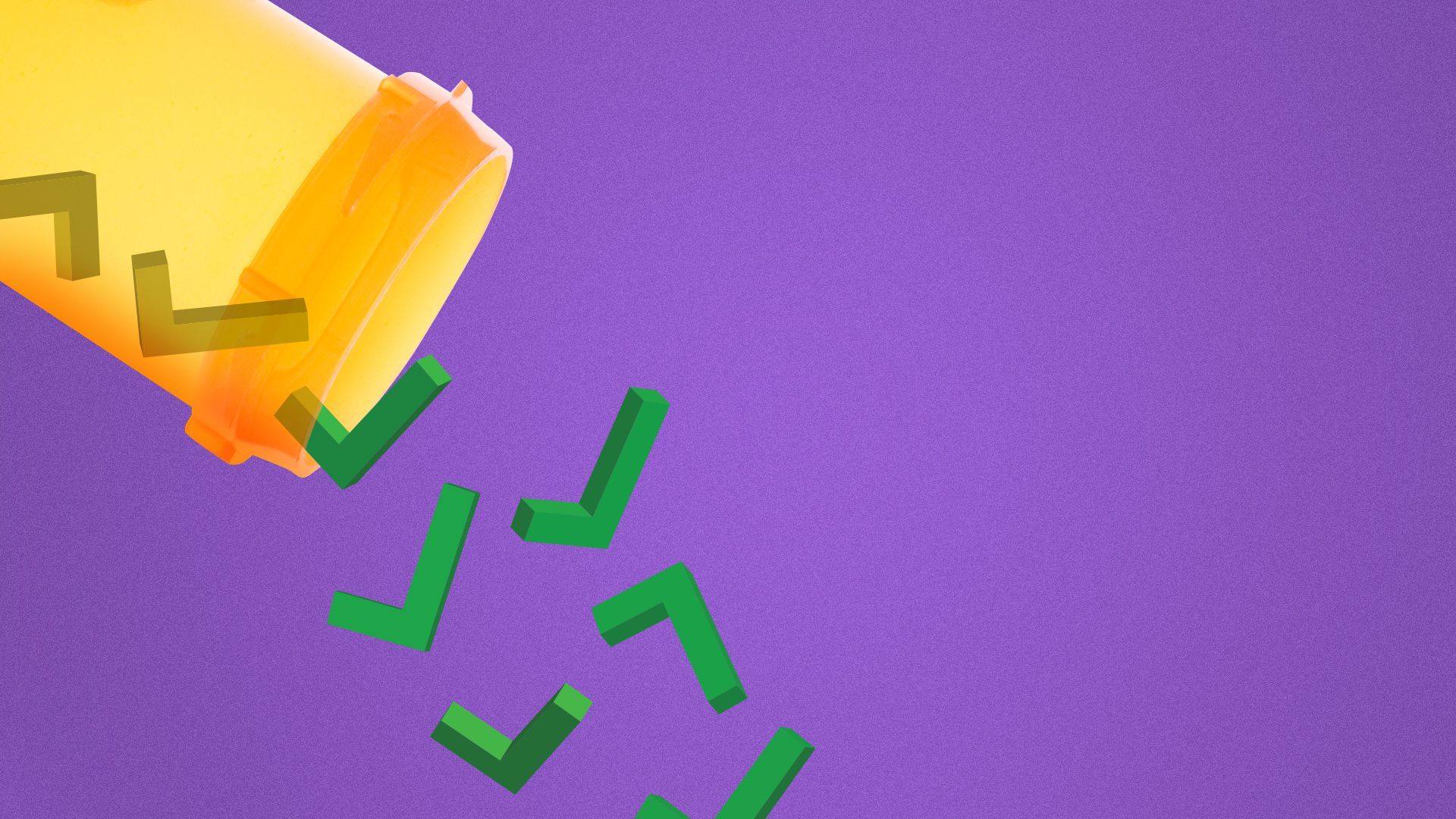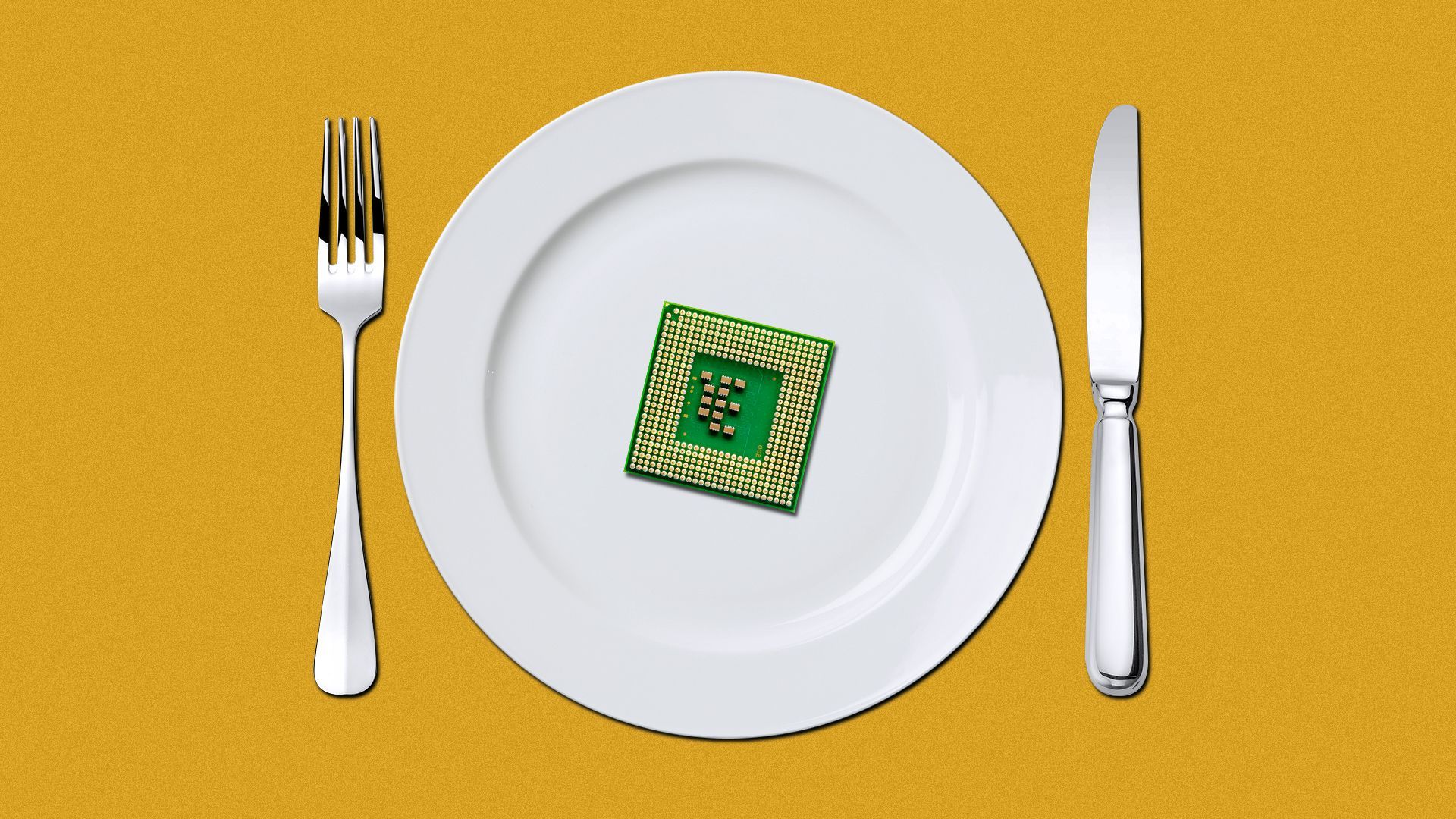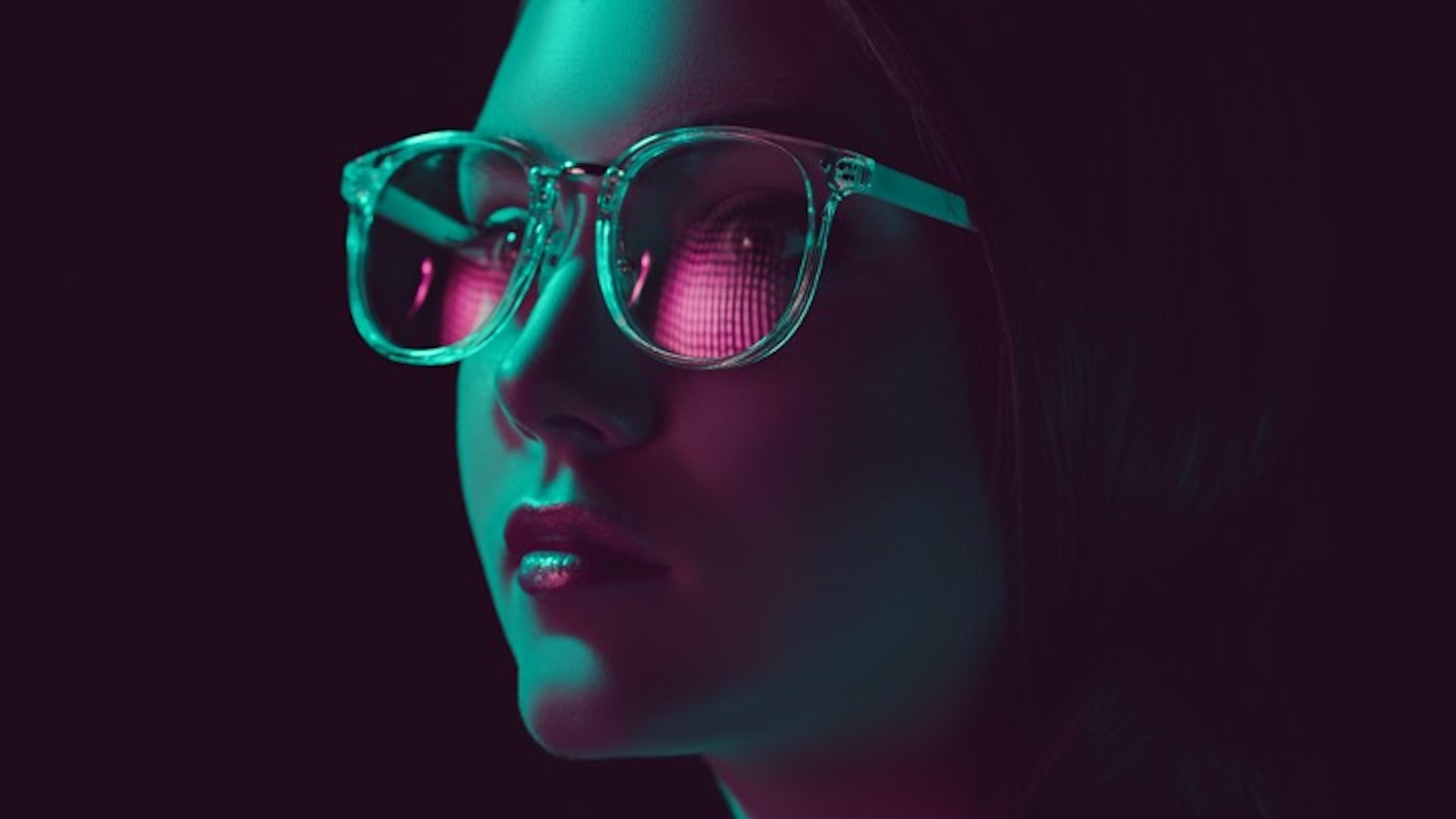| | | | | | | Presented By Hewlett Packard Enterprise | | | | Axios Future | | By Bryan Walsh ·Feb 06, 2021 | | Welcome to Axios Future, where I'm pleased to see the GameStop saga seems to have ended before I was forced to learn what a "short put" is. - Thank you to my 6-year-old nephew Tommy, who let me know that the Jeff Bezos/Blade Runner reference in Wednesday's newsletter was "not super funny, but enough to laugh out loud."
If you haven't subscribed, do so here. Today's Smart Brevity count: 1,776 words or about 7 minutes | | | | | | 1 big thing: The racial divide in returning to the classroom |  | | | Illustration: Annelise Capossela/Axios | | | | As the debate over reopening America's classrooms heats up, one overlooked factor is the significant racial gap in whether parents are ready to send their children back to school. Why it matters: Study after study shows that kids in remote schooling are suffering lifelong learning loss. But the concerns many Black and Latino parents express about returning their children to classrooms — concerns fueled by higher numbers of COVID-19 infections and deaths and historically underfunded schools — need to be answered first. By the numbers: In city after city, in survey after survey, parents of color have shown that they are much more worried about the safety of sending their kids back into classrooms than white parents. - In the most recent Axios/Ipsos coronavirus poll, 55% of Black parents and 40% of Latino parents reported they were extremely or very concerned about schools in their community reopening too quickly, compared to 25% of white parents.
- Those attitudes are reflected in which students are returning to classrooms for planned or partial reopenings, with white children either returning or set to return at higher rates than Black and Latino children in Detroit, New York, Nashville and other places.
Details: Parents' decisions are grounded in part in the personal experiences of a pandemic that has had stark and disproportionate racial differences. - Black and Latino Americans are more likely to have contracted COVID-19, more likely to have been hospitalized for it, and more likely to know someone who has died from it.
- According to a January survey from the Understanding America Study, more than 85% of Black parents agree or strongly agree that children are "at serious risk of health effects from COVID-19," compared to fewer than 50% of white parents.
Between the lines: Beyond COVID-19 concerns, experts say the racial divide can also be explained by mistrust in Black and Latino communities grounded in decades of institutional racism and a sense that schools have not effectively served their children. - By one estimate, a $23 billion gap — equivalent to $2,226 per student — exists in funding for predominantly white school districts versus predominantly nonwhite ones.
- Black and Latino children are also more likely to have experienced punitive discipline at schools, which further contributes to a reluctance among parents to send them back.
What they're saying: "For generations, these public schools have failed us and prepared us for prison, and now it's like they're preparing us to pass away," Sarah Carpenter, the executive director of Memphis Lift, a parent advocacy group in Tennessee, told the New York Times. Yes, but: The longer children of color remain in remote education — which experts overwhelmingly view as inferior to in-person schooling — the further they risk falling behind, perhaps for their entire lives. - A November report from the academic assessment nonprofit NWEA found that Black and Latino students and those from high-poverty schools experienced declines in reading test scores this fall, while white students and those from wealthy schools did better than expected.
The big picture: As it has in so many other ways, the pandemic has acted as an X-ray for America's struggling and unequal public school system, exposing cracks in trust and performance that have been forming for decades. The bottom line: If we can't find a way to address that concern that works for all parents, the inequalities baked into America's education system will only deepen, and those children who were already disadvantaged will suffer the most. |     | | | | | | 2. Zipline prepares to airlift COVID-19 vaccines |  | | | A Zipline drone makes a delivery in Rwanada in 2017. Photo: Cyril Ndegeya/AFP via Getty Images | | | | The drone startup Zipline announced this week that it is planning to deliver COVID-19 vaccines wherever it operates — including in the U.S. Why it matters: Aerial drones could be a useful solution to the challenge of getting vaccines to people in sparsely populated rural areas, while laying the groundwork for a new era of drone delivery. Driving the news: On Wednesday Nigeria's Kaduna state signed a deal with Zipline to allow drone delivery of COVID-19 vaccines. - That agreement was followed by Zipline's announcement on Thursday that it was building a delivery solution that would allow the company to safely deliver all leading COVID-19 vaccines in all of the countries in which it operates.
- That plan includes working with what the company says is a major vaccine manufacturer to build end-to-end cold chain distribution, which is necessary for vaccines like those from Pfizer.
By the numbers: Zipline, which launched in 2014 as a way to micro-deliver medical supplies in countries like Ghana that lacked an effective road distribution network, has already delivered more than 1 million doses of other vaccines in Africa over the past year. - Though its focus has been in Africa, Zipline signed a deal last May to distribute COVID-19 medical supplies in the United States. CEO Keller Rinaudo told CNBC that "more than 100 million people in America — in both rural and urban areas — live in pharmacy deserts" and could benefit from drone delivery.
What they're saying: "We're really not a Silicon Valley tech company anymore," says Matt Fay, data team lead at Zipline. "We're really a logistics company that is operating in Ghana, in Rwanda, in the United States." - To that end, Fay notes, each Zipline flight collects hundreds of megabytes of data to make distribution "as efficient as possible and as reliable as possible. We treat it as one machine that can take in orders and integrate into the local health care system."
The bottom line: Drone delivery is likely to be one more trend that the pandemic accelerates. |     | | | | | | 3. Automated audits for drug prescriptions |  | | | Illustration: Aïda Amer/Axios | | | | A startup has developed a way to use AI to detect when doctors may be prescribing the wrong drug — or overprescribing opioids. Why it matters: A system that could identify prescription mistakes before they happen could help save the thousands of Americans who die each year because of preventable medication errors, and it could contribute to controlling the opioid epidemic. How it works: In much the same way that financial institutions use automated systems to catch outlier transactions that may signal fraud, MedAware's platform analyzes the prescription patterns of thousands of physicians to flag when a medication may be in conflict with the profile of the doctor, the patient or the medical institution. - Gidi Stein, MedAware's CEO and a practicing physician in Israel, was inspired to start the company after hearing the story of a 9-year-old boy who died because his doctor accidentally selected the wrong drug on an electronic prescribing pull-down menu.
- "It wasn't bad judgment on the part of the physician — it was a typo," says Stein. "And you would have thought there was some kind of spellchecker to prevent this from happening."
By the numbers: Each year in the U.S. 7,000–9,000 people die due to a medication error of some kind, and the total cost of medication mistakes is more than $40 billion a year. What to watch: Stein is particularly worried that the rapid adoption of telemedicine during the pandemic could open the door to more medication errors, as online doctors deal with patients they may know little about. - "This is going to be the next phase of health care and that's perfectly OK," he says. "But we need to provide doctors the right tools so patients can be protected."
- With the opioid epidemic accelerating during the pandemic, Stein says platforms like MedAware can help doctors quickly identify patients who might be at a higher risk of abuse before they prescribe painkillers.
The bottom line: As in other fields, the sheer amount of health data is growing beyond the ability of humans to grasp alone, creating a need for automated systems that can save us from ourselves. |     | | | | | | A message from Hewlett Packard Enterprise | | How IoT and citizen sensors will make our cities smarter | | |  | | | | Tech has long promised to make city living safer, less congested, and healthier. With the rollout of 5G and the explosion of IoT, will these promises become reality? In some cases, yes. In others, it remains a technological dream. HPE's Lin Nease, chief technologist for IoT, offers answers. | | | | | | 4. Chip famine slams the auto industry |  | | | Illustration: Aïda Amer/Axios | | | | A global chip shortage has forced virtually every major automaker to halt some car production and furlough workers, my Axios colleagues Courtenay Brown and Joann Muller write. Why it matters: Fewer chips, fewer cars. Semiconductors are crucial components that make computer-controlled systems in cars work — everything from engines to power windows, as well as driver-assistance and navigation features. The list of chip shortage victims keeps growing: Ford is the latest, slashing production of its top money-making F-150 pickup trucks and other vehicles. - The company is bracing for a big hit: "Right now, estimates from [chip] suppliers could suggest losing 10% to 20% of our planned first-quarter production," Ford CFO John Lawler said yesterday.
- That could translate into lost profits of $1 billion to $2.5 billion for 2021, he said.
The company joins General Motors, Nissan, Volkswagen, Toyota, Mazda and Subaru in cutting production output — all citing the semiconductor shortage. By the numbers: The problem will result in nearly 700,000 fewer vehicles produced globally this quarter alone, according to new research from IHS Markit. It also said the problem might not let up until Q3. - AlixPartners says the lost revenue could be as much as $61 billion this year, per Bloomberg.
Go deeper: Why Intel's chip troubles should concern us all |     | | | | | | 5. Worthy of your time | | Nextdoor has stopped recommending political groups to users (Will Oremus — OneZero) - My former Medium colleague breaks news about the local social network's move to try to slow down the politicization and polarization of its service.
The next cyberattack is already under way (Jill Lepore — New Yorker) - As scary as the recent SolarWinds hack seemed, it's nothing compared to what's coming.
The surprising appeal of believing that you're living in "The Matrix" (Eric Ducker — GQ) - An interview with the director of a new documentary about the "simulation theory," which I'm on board with, as long as we're not living in "The Matrix Revolutions."
The terrifying warning lurking in the Earth's ancient rock record (Peter Brannen — The Atlantic) - Paleo-climate studies — research into the ancient climatic history of the planet — should make us worried about the future of the Earth.
|     | | | | | | 6. 1 fun thing: This spinach has your email address |  | | | This is the most exciting spinach photo I could find. Photo: DeAgostini/Getty Images | | | | Researchers at MIT have devised a way to allow chemical signals from spinach plants to transmit an email. Why it matters: The system could help provide an early warning system for explosives or pollution, but really, we just want to know what the spinach are thinking. How it works: In a study published this week in Nature Materials, researchers engineered the roots of spinach plants to contain microscopic nanosensors that are capable of detecting nitroaromatics — chemicals that are often found in explosives and man-made industrial chemicals. - When the nanosensors detect those compounds, they can send a signal to an infrared camera, which can shoot out an email alert.
What they're saying: "This is a novel demonstration of how we have overcome the plant/human communication barrier," Michael Strano, a chemical engineer at MIT and a c0-author of the paper, told Euro News. Our thought bubble: It's not so much that the plants are communicating with us, as that nanotechnology allows us to transform these plants into a kind of living computer. - Spinach cyborgs, if you will.
- DARPA — the Defense Department's advanced research wing — has an entire program dedicated to exploring how plants could be engineered to detect threats like pathogens and chemicals in the environment.
The bottom line: Whatever happens next in our conversation with plants, I hope it has a better ending than Mark Wahlberg's attempt to talk to a tree in "The Happening." |     | | | | | | A message from Hewlett Packard Enterprise | | The TL;DR on what's next in tech | | |  | | | | Enterprise.nxt's weekly newsletter helps readers smartly navigate the trends and technologies impacting business today, and in the future. From AI and cloud to security and edge computing, the emails provide insights for today's IT leaders. Join their community of over one million readers. | | | | | | Axios thanks our partners for supporting our newsletters.
Sponsorship has no influence on editorial content. Axios, 3100 Clarendon Blvd, Suite 1300, Arlington VA 22201 | | | You received this email because you signed up for newsletters from Axios.
Change your preferences or unsubscribe here. | | | Was this email forwarded to you?
Sign up now to get Axios in your inbox. | | | | Follow Axios on social media:    | | | | | |









No comments:
Post a Comment